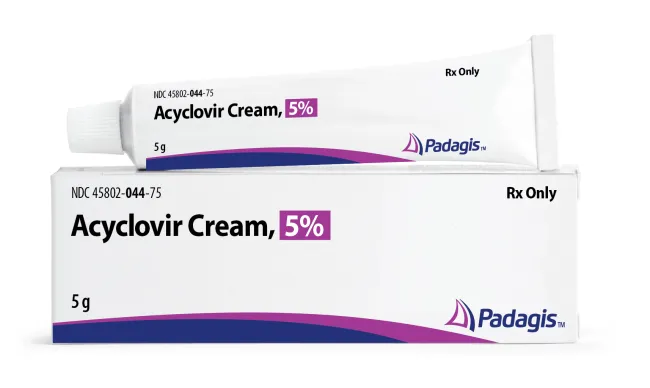Acyclovir Cream: The Ultimate Guide to Treating Herpes Outbreaks
Acyclovir cream is a powerful topical antiviral medication used to treat herpes simplex virus (HSV) infections, including cold sores (oral herpes) and genital herpes. If you're looking for an effective way to reduce pain, speed up healing, and manage outbreaks, this guide covers everything you need to know—from how it works to proper application and safety tips.
What Is Acyclovir Cream?
Acyclovir cream is a prescription antiviral treatment that helps control herpes outbreaks by stopping the virus from multiplying. It comes in a 5% topical formulation and is most effective when applied at the first sign of an outbreak.
Key Facts:
✔ Used for: Cold sores (herpes labialis) and genital herpes
✔ Works by: Blocking viral replication to reduce outbreak severity
✔ Does not cure herpes but helps manage symptoms
✔ Best for early treatment—apply at the first tingling or redness
How Does Acyclovir Cream Work?
Acyclovir is an antiviral drug that targets the herpes virus (HSV-1 and HSV-2). When applied to active sores, it:
- Prevents the virus from spreading to healthy cells
- Reduces healing time by up to 1–2 days
- Eases pain and discomfort associated with blisters
For best results, start using it as soon as you feel a tingle or see redness—before blisters fully form.
How to Use Acyclovir Cream Correctly
Step-by-Step Application Guide
- Wash your hands before and after applying.
- Clean and dry the affected area gently.
- Apply a thin layer of cream to cover the sore.
- Use 5 times daily (for cold sores) or as directed by your doctor.
- Avoid touching other areas to prevent spreading the virus.
Important Tips:
- Do not apply inside the mouth, nose, or eyes—this cream is for external use only.
- Wear gloves or use a cotton swab to avoid spreading the virus.
- Continue treatment for the full recommended duration, even if symptoms improve.
How Effective Is Acyclovir Cream?
Studies show that acyclovir cream can:
✅ Shorten outbreak duration by up to 30%
✅ Reduce pain and itching faster than no treatment
✅ Help prevent worsening if used early
However, it works best for first-time outbreaks or mild recurrences. Severe cases may require oral antiviral medications like valacyclovir (Valtrex).
Possible Side Effects & Safety Tips
Acyclovir cream is generally safe, but some people may experience:
- Mild burning, stinging, or itching at the application site
- Dryness or flaking skin
- Rare allergic reactions (rash, swelling—seek medical help if this happens)
Who Should Avoid Acyclovir Cream?
- People allergic to acyclovir or valacyclovir
- Pregnant or breastfeeding women (consult a doctor first)
- Those with weakened immune systems (may need stronger treatment)
Where to Buy Acyclovir Cream & How to Store It
Availability:
- Prescription required in most countries
- Brand names: Zovirax (branded version) or generic acyclovir cream
- Cost: Generic versions are usually more affordable
Storage Instructions:
- Keep at room temperature (avoid extreme heat or cold)
- Do not freeze
- Check expiration dates—do not use expired cream
Acyclovir Cream vs. Other Herpes Treatments
| Treatment | Best For | How It Works |
|---|---|---|
| Acyclovir Cream | Mild cold sores, early-stage outbreaks | Stops virus replication on skin |
| Oral Acyclovir | Frequent/severe outbreaks | Systemic treatment for faster action |
| Valacyclovir (Valtrex) | Preventing outbreaks | Stronger, longer-lasting effects |
| Docosanol (Abreva) | Over-the-counter cold sore relief | Slows virus entry into cells |
For severe or frequent outbreaks, oral antivirals may be more effective.
Final Verdict: Is Acyclovir Cream Worth It?
✔ Yes, if you catch outbreaks early—it can speed healing and reduce pain.
✔ Best for occasional cold sores or mild genital herpes.
❌ Not a cure—herpes can still reactivate later.
For best results, combine with good hygiene and stress management (since stress triggers outbreaks).
